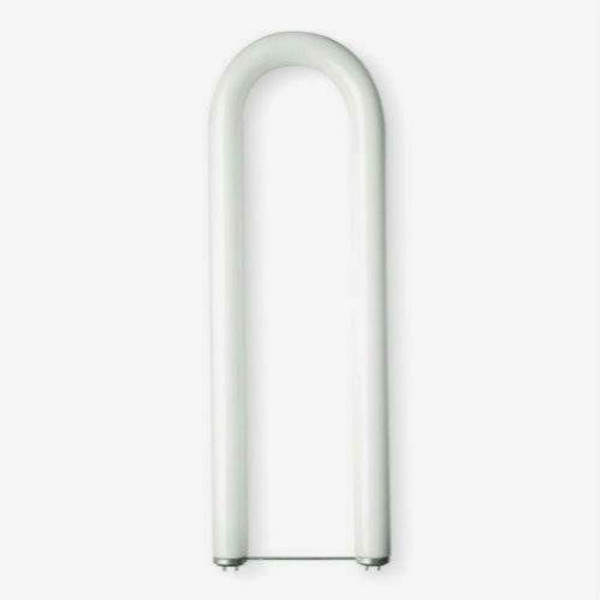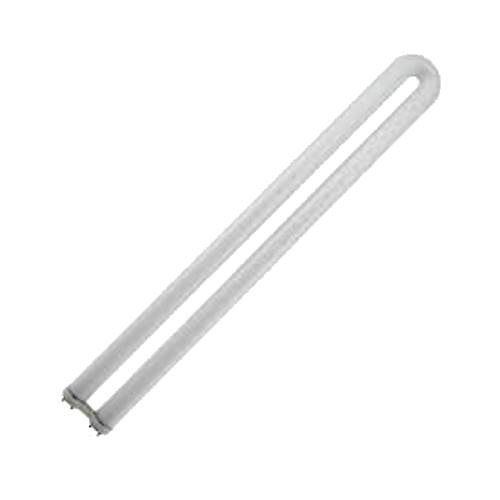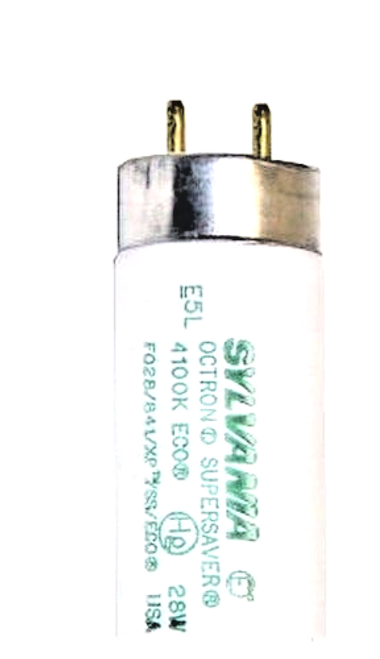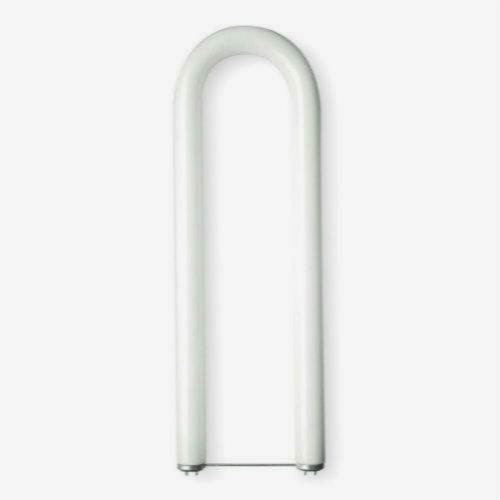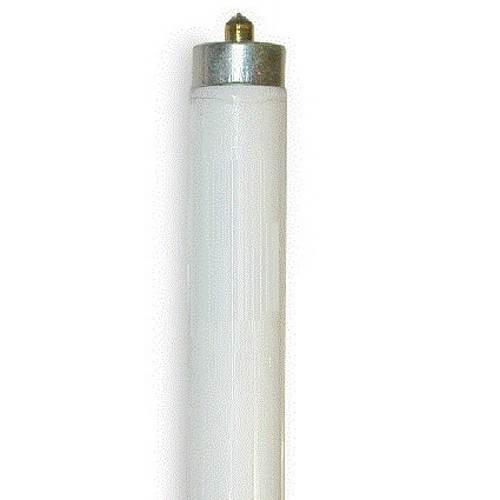Product Overview

Sylvania Octron 800XP 4100K 28W Fluorescent Super Saver T8 Lamps
- CRI 85
- Color Temp 4100K
- Initial Lumens at 25C 2590 lm
- Mean Lumens at 25C 2435 lm
- Rated Avg. Life 18,000-30,000hrs
- (G13) Medium Base
- MOL 22.6in x DIA 1in
- Brand Name Octron Curvalume
- Sold 15/Case
Additional Information
| Mean lumens are measured at 40% of average rated lamp life. Minimum starting temperature is a function of the ballast; consult the ballast manufacturer. Approximate initial lumens after 100 hours operation. OCTRON lamps should be operated only with magnetic rapid start ballasts designed to operate 265 mA, T8 lamps or high frequency (electronic) ballasts that are either instant start, or rapid start, or programmed rapid start specifically designed to operate T8 lamps. OCTRON lamps may be operated on instant start ballasts with ballast factors ranging from a minimum of 0.71 to a maximum of 1.20 at the nominal ballast input voltage. When OCTRON lamps are operated in the instant start mode, the two wires or two contacts of each socket should be connected to each other. They should then be connected to the appropriate ballast lead wire using National Electric Code techniques. The life ratings of fluorescent lamps are based on 3 hour operating cycles under specified conditions and with ballast meeting ANSI specifications. If operating cycle is increased, there will be a corresponding increase in the average hours life. SUPERSAVER® lamps are recommended to be used on F32T8 ballasts with minimum open circuit voltage of 550V RMS at the lamp. Not recommended to be used: (1) in remotely ballasted fixtures with lamp open circuit voltages below 550V, (2) with Rapid Start ballasts unless the lamp open circuit voltage is greater than 570V, (3) in air handling fixtures, (4) on low power factor ballasts or (5) inverter operated emergency lighting systems unless the equipment is specifically listed for particular lamps. Any of the above situations could result in lamp starting and stabilization problems, or system compatibility issues. If an operating lamp is exposed to drafts or the ambient temperature falls below 60ºF (70ºF for 25W), striation (a rhythmic pulsing pattern of light running down the tube) and/or reduction in lamp brightness may occur. While visually disconcerting, neither behavior is damaging to the lamp and removing the cause (draft or temperature) will return the lamp to normal operation. |

